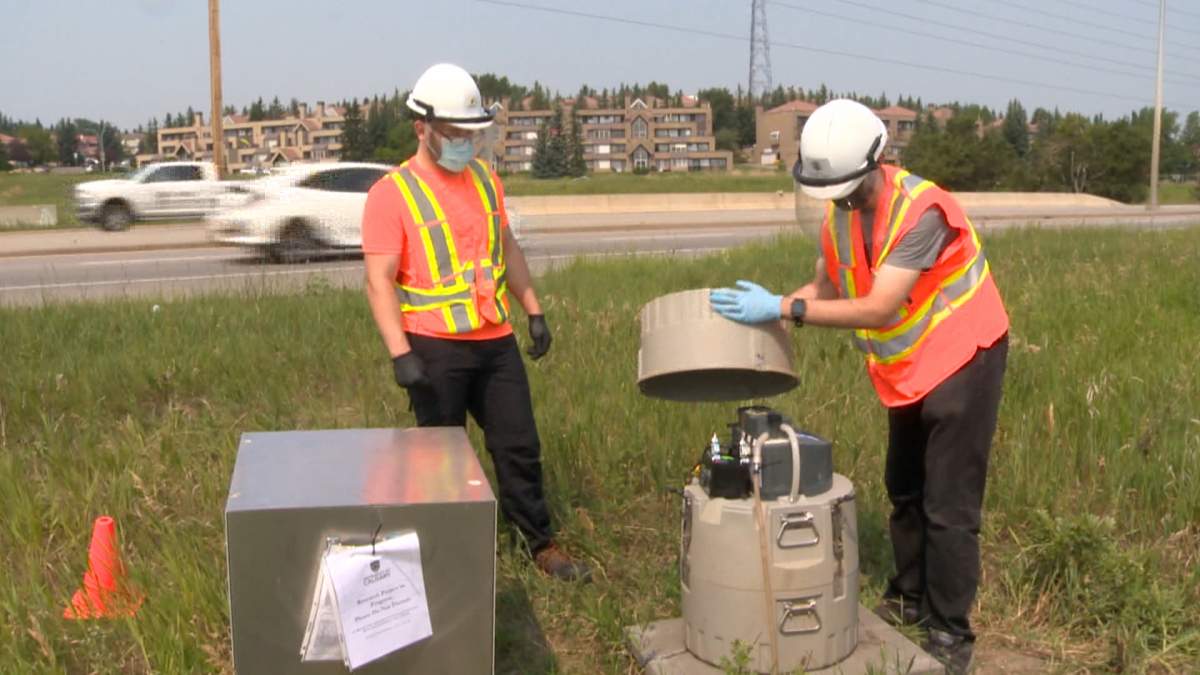Health experts embraced it as a valuable tool to help track the spread of COVID-19 during the pandemic.
Now, those same experts say it may also help health officials get the jump on preventing measles outbreaks in places like Alberta, a province that now has the notorious reputation of having surpassed the entire United States for the number of lab-confirmed cases of the highly-infectious virus.
“I think surveillance is best when you have a number of different ways of following the disease and molecular testing of wastewater proved its worth during COVID,” said Alberta’s former chief public health officer, Dr. James Talbot.
“It identifies when a virus has moved into new territory. It can be the earliest signal for that. It tells you whether the situation is getting better or worse, which is very important to know,” added Talbot.
“And finally, when you’re taking measures to control it, that kind of surveillance can tell you whether the measures are working or not.”

Dr. Xiaoli Pang, a professor in the Department of Laboratory Medicine and Pathology at the University of Alberta, has been testing wastewater from 12 treatment plants across Alberta, once a week, since April 1.
“We never can replace clinical testing, because we are not able to detect who is infected, how many people are infected — we are just, through the community, (doing) population-based monitoring,” said Pang.

Get weekly health news
Because the incubation period for measles can be up to three weeks — from exposure to the appearance of symptoms — Pang said the testing may be able to provide health officials with early detection of where outbreaks could occur, providing them with valuable information on where to focus their vaccination and education efforts.
The testing can also distinguish between the disease strain of measles and the strain used to produce the vaccine — which means it might also be useful to help determine how much of the population in a particular region has already been vaccinated.
“This disease is a predictable disease. If you apply a vaccine, you get protected, so that is important information for public health,” added Pang.
One of the shortcomings of the wastewater testing is it likely does not accurately reflect the infection rate in babies or young children who may still use a diaper.
According to the Alberta government, about a third of the people in the province infected with measles are under 5 years of age.
But many health experts claim use of the existing system of clinical testing is likely also underestimating the size of the measles problem in Alberta.
“The surveillance system that’s in place right now is likely to be undercounting the number of cases,” said Talbot, “particularly in the summer, because there’s so many opportunities during the summer for the measles virus to spread, as kids go to sports camps, Bible camps, family gatherings, summer camps and big events too, like the Calgary Stampede.”
Despite the promising results, however, Pang said the wastewater testing program is short on funding.
“I’m only able to plan to monitor measles until end of this year,” said Pang. “I believe this virus is (going to) continue to cause a huge problem and we may not be able to continue.
“So that is a challenge.”

Global News asked the Alberta government if it plans to use wastewater testing to help in the fight against measles.
The Ministry of Primary and Preventative Health Services provided a written statement that said, “public health officials are reviewing this data to determine its relevance during the current outbreak. However, because measles is a notifiable disease with clear, recognizable symptoms, the vast majority of cases are identified through routine public health surveillance.”
The statement continued, “At this stage, measles wastewater surveillance is considered an exploratory tool and is not anticipated to support earlier case detection, as public health already has a clear understanding of where cases are occurring and how the virus is spreading.”
Talbot, however, who has been highly critical of the province’s efforts to prevent the spread of measles, believes wastewater testing could be another valuable tool for the province to use.
“You know, the provincial government is fond of saying that getting immunized is a personal decision, which of course it is,” said Talbot.
“But they never go on to make the second point, which is that although it’s a personal decision, it has consequences for other people.”




Comments